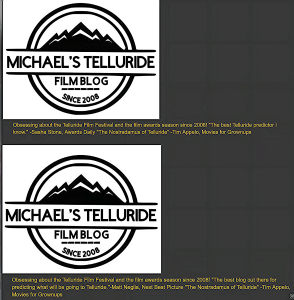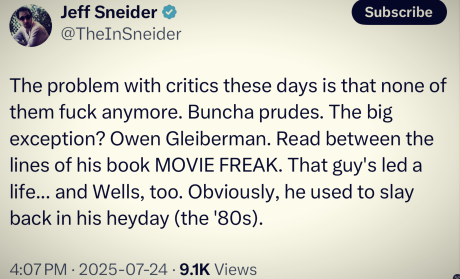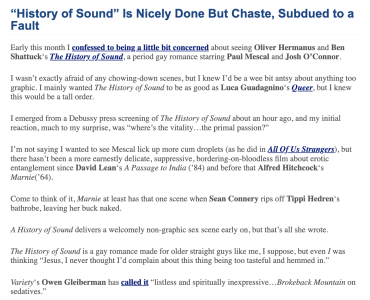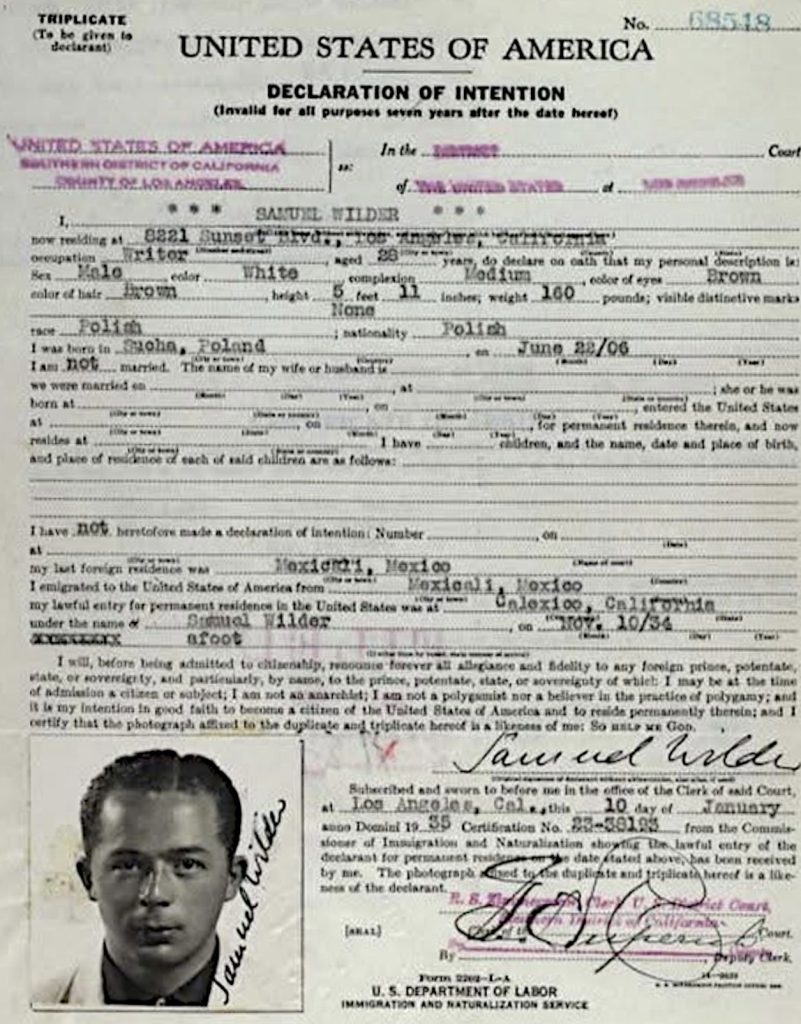For many years Michael’s Telluride Blog, run by the Oklahoma-residing Michael Patterson, carried an endorsement quote from Awards Daily‘s Sasha Stone, to wit: “The best Telluride predictor I know.”
But in the wake of Sasha’s industry-wide cancellation following Rebecca Keegan’s 8.14.24 THR hit piece, Patterson decided to play it safe by ditching the Sasha quote and replacing it with a nearly identical one from nextbestpicture’s Matt Neglia (“The best blog out there for predicting what will be going to Telluride“).
HE to Patterson: “So when did you jettison Sasha’s quote, Michael, and arrange to replace it with a similar one from Matt? How long ago? I just noticed the switch when I checked this morning.
“Oh, and by the way: Why have you listed Scott Cooper‘s Springsteen: Deliver Me From Nowhere (20th Century, 10.24) as a film “that could still play Telluride”? You don’t see this as a highly likely booking? It would not only be almost surreal if it doesn’t play Telluride, but you can almost bank on Bruce himself showing up at the Telluride picnic and maybe even performing an acoustic set at the Sheridan Bar or at a party somewhere on Colorado Avenue. I don’t know this for a dead fact, of course, but c’mon…”
Before and after:









